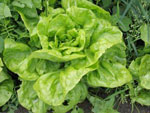I just got back from taking my kids to visit a friend in the hospital who has suffered with MS for the last 30 years. It got me thinking about the disease and I did a little research.
I came across this video from Dr. Terry Wahls. Dr Wahls was a Tae Kwon Do master as well as a medical doctor. She had 2 children and was then diagnosed with secondary progressive Multiple Sclerosis (MS). This type of MS degenerates the brain, eventually shrinking it. Dr. Wahls was treated at the nations best MS clinics with no success.
She then decided to turn herself into a living experiment. She is now a firm believer in the natural healing of ms by changing your diet. The video describes her journey to freedom as she cut out dairy, and relied heavily on eating huge amounts of fruits, vegetables, grass fed meats and seaweed. In one year she turned her life around. Whereas before she relied completely on a wheelchair to get around, she now bikes to and from work every day! Really a must watch:
[youtube]http://www.youtube.com/watch?v=KLjgBLwH3Wc[/youtube]
Natural Healing of MS By Changing Diet
Wahls speaks of eating nine cups of plants every day, with three coming as leafy greens, three as sulfur-rich vegetables, and three as brightly colored fruits and vegetables. She explains why each category is so important, not just for someone looking to reverse MS, but for anyone who wants to be healthier in general [….] Here are just a few great greens to start with:
- Kale
- Chard
- Lettuce
- Mustard
- Collards
- Parsley
- Spinach
- Beet greens
- Sweet potato leaves
- Arugula
- Baby greens
- Endive
Terry Wahls likes greens for the minerals and vitamin content. Greens represent a convenient, essentially non-caloric, nutrient-dense source of otherwise hard to obtain minerals, like magnesium, calcium, potassium, and manganese. What do those minerals do for me? Let me share…
Magnesium
Of all the minerals we Primal folks talk up, magnesium may very well be the most widely supplemented. It’s certainly one of the most important; over 300 physiological processes in the human body require magnesium to function optimally, foremost among them the production of ATP for energy. Your mitochondria use magnesium to produce ATP, the body’s energy currency. Eating greens like spinach and chard will go a long way toward adding dietary magnesium.
Calcium
Of all the minerals we discuss, calcium may be the least-supplemented or most-ignored. That’s a mistake. While I’ve certainly called into question the wisdom of supplementing with handfuls of calcium pills without considering the roles of vitamins D and K2 in bone mineralization, we still need calcium. We still need that raw building block (and crucial trigger for neurotransmitter release). And if you’re not eating dairy, leafy greens are probably your best source.
Potassium
Potassium is another nutrient a lot of people miss out on, especially if they’re overcooking their meat (the juices contain the potassium), avoiding tubers and fruits (both are high in potassium), and shying away from avocados because of the linoleic acid. I just got done writing about the importance of the potassium:sodium ratio in regulating blood pressure, so if you’re not eating the aforementioned potassium-rich items (and even if you are), be sure to eat your greens.
Manganese
Your mitochondria use manganese to manufacture manganese superoxide dismutase, a potent mitochondrial antioxidant. With inadequate superoxide dismutase, you increase your chances of ischemic brain injury (think stroke) or developing a neuropathology. Simply put, manganese keeps your mitochondria running cleanly.
Unless you’re eating bones, drinking blood/meat juice, and eating hoof, fur, and tail, you’ll be missing out on magnesium, potassium, and calcium by excluding leafy greens.Folate
Though it’s widely touted as particularly crucial for expectant mothers and the development of the babies they bear, folate is also important for anyone’s general health. Inadequate dietary folate intake can lead to elevated homocysteine levels (which can impair endothelial function and is a risk factor for heart disease).
Betaine
Betaine is another important but oft-ignored nutrient that many people lack. Like folate, it regulates proper homocysteine levels. Betaine also helps maintain liver health. Spinach is perhaps the greatest vegetable source of betaine. Original Article Here
The Natural Healing From MS by Changing Your Diet is a strong idea which may or may not work for everyone, currently however, MS has no cure, therefore, It seems ludicrous not to at least try changing your diet.
Do you have MS or know anyone that does? I’d be interested to hear from people who may have tried this either successfully or unsuccessfully.

Absolutely inspiring and informational, thank you